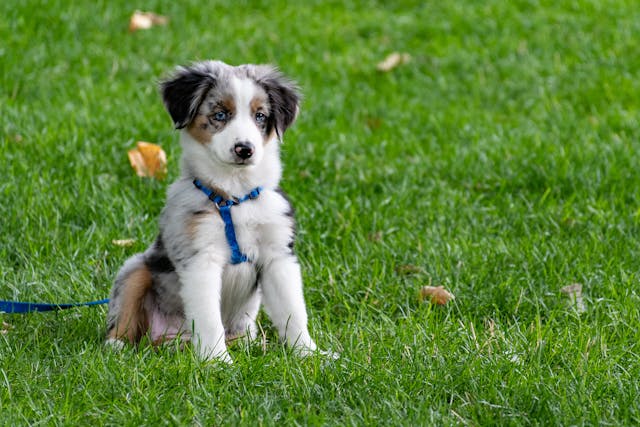Have you ever been petting another dog, only to notice your furry friend suddenly nudging their way into the spotlight? Or maybe your dog gets a little too clingy when you spend time with someone else. It’s easy to think, “Are they jealous?” Well, you’re not alone in wondering. Many dog owners have puzzled over their pets’ seemingly possessive behaviors. But do dogs truly experience jealousy, or is it just our human tendency to project emotions onto them? Let’s dive into this fascinating question.
What Is Jealousy, and Do Animals Feel It?
Jealousy is a complex emotion, one that’s deeply tied to relationships and competition. In humans, it often flares up when we feel someone is encroaching on something—or someone—we value. But here’s the kicker: researchers aren’t entirely sure if jealousy is unique to humans or if our four-legged friends feel it too.
Animals, particularly social species like dogs, are known to exhibit a wide range of emotions. From joy when you return home to sadness when you leave, dogs wear their hearts on their sleeves. But jealousy? That’s a tougher nut to crack. To understand if Fido’s sulking is more than just a reaction, we’ve got to look at the science.
What the Research Says
Scientists have taken a keen interest in uncovering the emotional lives of dogs, and jealousy is a hot topic. One groundbreaking study from the University of California, San Diego, put this question to the test. Researchers observed dogs’ reactions when their owners interacted with a realistic-looking stuffed dog. The result? Many dogs pushed between their owner and the “rival,” barked, or even tried to nip at the stuffed imposter. Sound familiar?
Even more intriguing, dogs exhibited these behaviors even though the fake dog posed no real threat. This led researchers to conclude that dogs may indeed feel a form of jealousy—or at least something strikingly similar.
On a deeper level, studies show that oxytocin, often called the “love hormone,” plays a big role in dogs’ emotional bonds with humans. This hormone might also be tied to their possessive behaviors. When your dog acts up because you’re focused on someone else, they might be expressing their deep bond with you.
Signs Your Dog Might Be Jealous
Dogs can’t exactly say, “Hey, I’m feeling left out!” but they sure have ways of letting you know something’s up. Keep an eye out for these behaviors:
- Clinginess: Does your dog suddenly become your shadow when you’re paying attention to someone else? That’s a telltale sign.
- Aggression: Growling or snapping at the perceived “competition” is a classic move.
- Attention-seeking antics: Excessive barking, pawing at you, or even jumping between you and the other “object of affection.”
- Destructive behavior: Tearing up toys or furniture could be their way of saying, “Look at me!”
But don’t jump to conclusions—it’s important to differentiate jealousy from other issues like anxiety or territoriality.
Why Would Dogs Feel Jealous?
If dogs do experience jealousy, it likely ties back to their evolutionary roots. In the wild, competing for resources—whether it’s food, mates, or attention from the pack leader—could mean the difference between survival and struggle. Jealousy, or at least a jealousy-like instinct, might have helped keep dogs at the forefront of their pack’s priorities.
Domestication has only deepened their bond with humans. Dogs rely on us not just for food and shelter but also for emotional fulfillment. When they feel they’re losing your affection to another pet or person, that primal urge to compete can bubble up.
How to Manage Jealousy in Your Dog
Jealousy can be cute—until it’s not. If left unchecked, it might lead to behavioral problems. The good news? You can take steps to help your pup feel secure and loved.
1. Give Equal Attention
If you have multiple pets, make sure each one gets quality one-on-one time. Jealousy often stems from feeling overlooked.
2. Reward Positive Behavior
Praise your dog when they stay calm around the “competition.” This reinforces good behavior and reduces stress.
3. Train Them to Share
Use commands like “sit” or “wait” to teach your dog patience when you’re interacting with others.
4. Introduce New Pets Gradually
Bringing a new animal into your home? Give your dog time to adjust. Slow introductions can prevent feelings of rivalry.
5. Consult a Professional
If jealousy escalates into aggression or other problematic behaviors, don’t hesitate to seek advice from a vet or behaviorist.
The Emotional World of Dogs
So, do dogs get jealous? The evidence suggests they might, at least in their own way. Whether it’s a full-blown emotion like ours or something simpler, one thing’s clear: dogs are emotionally complex creatures. Their loyalty, love, and yes, even their jealousy, reflect just how deep their bond with us runs.
The next time your dog nudges you while you’re chatting with a friend or cuddling another pet, don’t brush it off. It’s just their way of saying, “Hey, I love you. Don’t forget about me.” And really, who could resist that?
Have you experienced jealousy in your dog? Share your stories in the comments below—we’d love to hear them!


